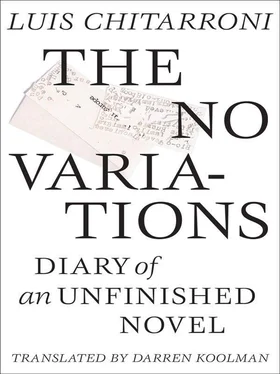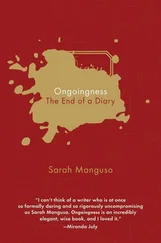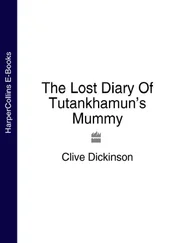Ah, the seventies.
“The Ethical Dative,” said Zi, sagely. “I’m reminded of a poem by a now forgotten Mexican poet you’ll probably never again see in print.” Hernán looked at him as if he were about to betray himself a member of a secret brotherhood. Then Zi recited:
The ethical dative moved you. You disappoint me .
It’s the same with almost every woman your age
(And age is what counts, almost all that counts) .
True, we shouldn’t be indifferent with the time ,
But it’s wrong to note the chime of every hour. We must
Do away with superstition, the tender bruise
Around our wrist, the thumb pressed on our veins .
But noting the passage of hours is what you do best:
You disappoint me. Noting the chime of every hour
is what women who know me better than you ,
do their utmost to forget .
You have made me as true as a commandment or debt .
What a pity. I will do my best to ensure you forget me ,
I will do my utmost to ensure I forget about you …
It was a crazy gathering of people, the consecration of memory, the forgetting about paradise, the loss of a kingdom that was only for me . The rhythm of the day must have consulted the laughter of a century’s close to beguile me with such extravagance, such opulence, behind my back.
The Princess of Faucigny Lucinge was introduced to me by Amelia Mevedev, who, aspiring for proustian éclat, said: “you will have spoken to or seen her on more than one occasion, which is, I suppose, the same thing.” Of course not. She was a mummy whose bandages reeked with the myrrh of premonition, leaving me with a sickening, cloying feeling. Vertigo, gooseflesh, a feeling of resonance with Chateaubriand. It was a supernatural resonance, hardly an aroma.
The entourage didn’t halt as they passed, and I forced myself to salute a chattering of incumbents who kept tabs on the senescence and senility of their soon-to-be retired forebears. “A pleasure, Mr. Espeche.”
Outside, with no sense of the time . Hilarión Curtis, a handsome man wearing a handsome amount of makeup (full crimson lips, eyes darkened with kohl), recited to me a sonnet by Salvador Novo about starched entrails or viscera or something, and after asking me for the time and politely requesting a kiss — and after I said that my watch had stopped — he recommended I read Novo’s diaries from the period of the poem’s composition. “Son, look at how much trouble I went through to be reborn.”
Some chandelier crystals began to fall (from the canopy, the baldachin). And when everything seemed about to extinguish, recede, die out, when each of those crystal drops or tears had fallen, someone who resembled Onofre Borneo, with an accent less Chilean than drunken, began insisting, confusedly, confounding me with someone else — Luini? — that I give him back all his originals. How many were there?
The countess Merlin, disguised as Mother Hogarth, couldn’t disguise her airs, so she left the group before she was detected. And Constantina Mevedev, like Harry Houdini, introduced Federico Prosan, who’d traveled clandestinely, as Nicolás Mancera — who was also present (I saw him walking away or ducking out of the meeting) — in a magic trunk, decorated with an old-fashioned sailor’s compass. While the father of Lupanal — most recent proctological descendant — and newly invented biographer of Hilarión: Russ Tamblyn disguised as Tom Thumb.
“After my cursory glance at Nebrija’s grammar …” I said, “I maintain that Nurlihrt doesn’t write as badly as Elena …”
A squat, ill-mannered Mexican wearing an ugly jacket with a pistol barely concealed at his waist made his way towards us. He was Bernabé Jurado, the shyster lawyer who’d secured the acquittal of W. S. Burroughs for his uxoricide. I wondered what Yturri Ipuche would think.
… And in that sweet carnivalesque apotheosis,
That playful, Bakhtinian,
subversive, subjunctive
Hebraic,
literary apotheosis,
I extended a hand, like a blind man or woman who’s remained at a pier,
Alone in the silence and spray
The conticent hour
when the gondola’s left for [a] neighboring dark,
as in the film I saw [in the company of others]
long, long ago
(and those who were with me were
Corpses or wives , as Swinburne wrote,
And all I recall about the film
is it was inspired by a book,
Du Maurier’s Don’t Look Now ), and a warning:
Be cautious, be alert …
On the contrary. Be heedless, unprepared in every situation …
And although I believed finishing a book, even a narrative like this, required a long and emphatic peroration, a prolonged and ecstatic yawp or agonizing howl, a grinding of the teeth and beating of the breast, I realized that for this ending — which really is the last one — I could dispense with an ecstatic or plangent finale, smother all feeling, suppress all effusion, and end my narrative with a whimper. And thus lowering my voice, lowering it below the register of a whisper, I told Zi, Zinaida Gippius, Zi Benno, Zeno Cosini:
“How costly and pointless it all turned out to be.”
They looked at me blankly, vacantly, vacuously. Finally [their eyes] one of the two conveyed, repeated:
— And what’s worse, it looks set to continue, very near to me, but apparently speaking from the other side.
And from the other side — from West Berlin — Zi and I saw the slow, uncreditable development of the showbiz aspect of the contemporary novel.
And then we saw a young, historical, couple running away, going into hiding. They took refuge in one of the izbas that are found dotted on the outskirts of Xochimilco’s teeming suburbs.
We saw them or I saw them while Xochimilco’s golden dawn was passing.
A hideous pariah dog followed them in .
And I retreated back until I found myself , three years or three millennia before, in the Ritz Hotel. When I lowered my eyes, I saw the same [oafish, unclaimed] error: tortillas mistaken for “tostadas.” The sun was setting. I began to regret my perpetual error when we disembarked from the vessel
Common ending: St. Mawr / Xochimilk
In the airport, shortly before departure, I consulted [I consult] my watch, alive and ticking again: while respiring in that little case, what [the hell] does the time be thinking?
We may be the products of that anguish, narrowness, asphyxia.
The issue of the first and last erection of a god, dangling from a gallows that we built.
The heart of standing is not to fly . Empson, “Aubade.”
Larkin.
… if we told that the surrounding aristocracy was accompanied by a serviture of ghosts, that … so as not to make it laughable (Cf. The Barefoot Contessa ), their number should be doubled …,
… there were an insufficient [odd] number of offices where we worked (headquarters of the impossibly-named business: Beehaitchhaitch), [above all because] one of the three was the boss. How old was the boss? Same age as I am now. How old was I back then? Same age as my buddy, Gustavo. We’d left military service the year before: eighteen, nineteen, twenty. The days when we stayed up until late, until ten, eleven, or even later if one of the employees lost track of the time. When we left, we used to stop the machines — an Olivetti 24, and an old Remington typewriter with a wide-carriage for doing the dirty work — a habit the consul’s wife disapproved of, who, one morning or afternoon, passed a comment about her seeing them do the same thing in police stations.
Читать дальше












